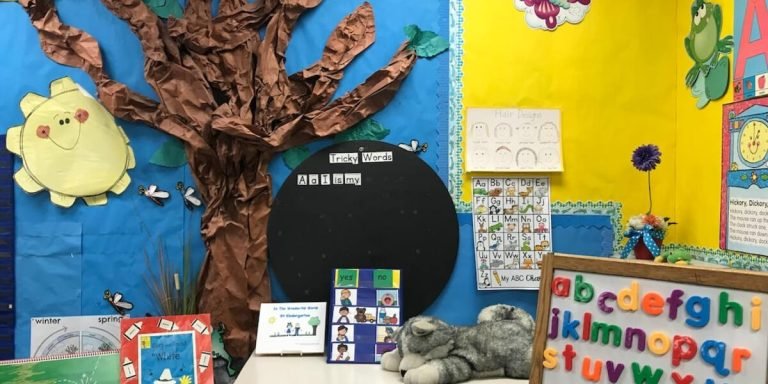Elementary Education Major: Exploring the Path to Shaping Young Minds
An Elementary Education Major gives individuals the necessary tools to mold young minds and shape their future. This career path exposes you not just to learning processes, but also instills in one a profound understanding of developmental stages. As an elementary education major, you’ll be equipped with essential skills such as classroom management techniques, curriculum development strategies, and creative pedagogical methods aimed at developing curious and knowledgeable learners.
However, pursuing this discipline requires more than just passion – it demands dedication coupled with practical knowledge on handling diverse learners’ needs. From social-emotional growth aspects to cognitive skill advancements; from inspiring creativity in young souls to channeling energy into productive avenues – every single facet is keenly explored within an elementary education major program.
Did you know?
Did you know that Finland, renowned for its exceptional education system, doesn’t start formal schooling until age seven? The focus before this is on learning through play and fostering social interaction.
The Core Curriculum of an Elementary Education Major
An Elementary Education Major offers a comprehensive foundation for individuals keen on shaping the future generation. The core curriculum of this program is meticulously designed, focusing to provide broad-based knowledge and skills needed in today’s dynamic elementary school classrooms. In 2023, we have seen modern trends incorporated into these curriculums reflecting an updated perspective towards childhood education.
One key component of any noteworthy Elementary Education major is its interdisciplinary focus – amalgamating language arts, social sciences, mathematics and natural sciences all under one umbrella. This holistic approach enables prospective teachers to develop multidimensional teaching strategies that help nurture well-rounded students with varied interests and abilities; preparing them not just acadically but for life itself as they step out beyond their home turf.
Moreover, there’s considerable emphasis on classroom management techniques within the academic structure of an Elementary Education Major- it teaches educators how to form rules effectively while establishing a positive learning environment based on mutual respect between students themselves and also between student/teacher relationships. This empowers young learners who are more likely thrive when given clear boundaries coupled with uplifting reinforcement from authority figures they trust.
Understanding the Foundations: Math, Science, and Literacy Basics
Starting an educational journey as an elementary education major means diving deeply into the fundamentals of learning. It’s about mastering core subjects like mathematics, science, and literacy that lay a solid foundation for young learners.
Mathematics is often considered one of the most challenging subjects in any school curriculum yet it’s fundamental to everyday life. As an elementary education major, you’ll focus on teaching techniques which help children understand basic mathematical concepts easily. You learn approaches intending to reduce math anxiety among kids and instill them with confidence in their ability to solve problems.
Next comes Science – another significant pillar of the core curriculum for anyone aiming towards becoming an effective educator at this level. In 2023, scientific literacy has become even more critical given our rapidly changing technological landscape. Elementary-level science introduces students not only to knowledge about natural phenomena but also nurtures curiosity and investigative skills—which are crucial traits needed for future innovators!
Finally comes Literacy basics—a skill without which all other fields remain inaccessible! This subject forms a vital part of studies pursued by every aspiring elementary education major since text comprehension stays central to academic success throughout schooling years.
Teaching how letters form sounds that combine into words—and eventually narratives—is no small task indeed! Future educators must master strategies such as phonics instruction or guided reading lessons promoting fluency while developing vocabulary plus comprehension abilities amongst youngsters.
Pedagogy Essentials: Teaching Methods for Young Learners
As an elementary education major, it’s crucial to master the art and science of teaching young learners. The pedagogical journey involves a deep understanding of various methodologies that cater to this specific age group.
One essential area is ‘Student-Centered Learning.’ This approach empowers youngsters, making them active participants in their educational process rather than mere spectators. It encourages critical thinking and problem-solving skills from early stages, contributing to an all-rounded development.
Next comes ‘Differentiated Instruction’. Recognizing that each child has unique learning needs is vital for effective instruction. A diverse classroom demands comprehensive strategies tailored according to individual abilities, interests and learning styles – fostering personalized growth while ensuring no one falls behind.
‘Cooperative Learning’ is another highly beneficial method where students work collaboratively on tasks with shared objectives. It fosters social skills like communication, teamwork as well as academic prowess by facilitating peer-to-peer interaction thereby promoting deeper understanding through discussion and debate.
Any aspiring elementary education major who understands these essentials will perfectly navigate the fascinating world of childhood academia.
Developing Effective Classroom Management Skills in Elementary Education
Understanding and mastering effective classroom management skills are imperative for anyone involved in an elementary education major, especially as we navigate 2023’s dynamic educational landscape. These foundational years can lay the groundwork for a child’s successful journey through schooling life; hence, it is essential that teachers create a comfortable learning environment where students can flourish. The demand to shape an engaging, flexible yet structured atmosphere poses unique challenges but also offers unparalleled rewards.
Classroom management expands beyond keeping order among youngsters in school; it includes creating supportive relationships with your pupils while maintaining rewarding pedagogical practices. This translates into setting just rules and consequences which will help nurture mutual respect between the teacher and student — making children understand you’re not simply enforcing restrictions but guiding them towards responsible behavior.
Importantly, today’s digital advancements necessitate integrating technology within classrooms subtly yet efficiently without overwhelming young learners or sidelining traditional teaching tools completely. An elementary educator must strike this balance artfully – harnessing technological perks like personalized learning apps or virtual reality simulations alongside classic blackboard instructions or group activities enhances both individualized instruction and collaborative work simultaneously.
Strategies for Maintaining Discipline and Engagement
Elementary education is a critical stage in every child’s life. As an elementary education major, you are given the responsibility of shaping young minds and ensuring they have solid foundations for future learning. One important skill that can significantly impact your effectiveness as an educator in this phase is maintaining discipline and engagement.
Firstly, it’s key to set clear expectations for classroom behavior right from day one. Make students aware of their responsibilities towards class decorum – how quietly raising hands instead of shouting out answers creates a more conducive environment or why leaving their seats without permission disrupts overall focus.
Adopting visual aids could prove to be beneficial when seeking undivided attention from children. Incorporation of multimedia resources like videos, audios narrations not only grasp eyeballs but also generate higher interest levels among kids fostering active participation during lessons.
Another effective strategy revolves around reinforcing positive behavior rather than always focusing on misbehavior.Being appreciative even about small achievements promotes confidence among students. Mediums such as ‘Star Student Of The Week’ offer great possibilities here!
Crafting a Positive Learning Environment
Creating a vibrant and encouraging classroom setting is an essential skill for any elementary education major. At this stage, when children are eager to learn and explore, the atmosphere of their learning environment has significant influence on their educational development.
A positive learning environment starts with a well-planned lesson. A thoroughly prepared lesson plan generates interest among students by ensuring smooth transitions between activities. This minimizes off-task behavior that leads to disruptions.
Establishing clear expectations plays another pivotal role in fostering a conducive academic space. For successful management of an elementary school class, it’s necessary from day one to lay out what behaviors are acceptable in the setting; these should be enforced consistently throughout the year 2023 onwards as part of your schooling curriculum.
Remember too that respect can go both ways – teachers who openly recognize students’ thoughts and emotions promote mutual respect within classrooms.
Encourage student collaboration through team-building exercises or group projects which foster harmonious relationships amongst classmates while also building critical communication skills needed for future endeavors beyond elementary education.
Incorporating playful elements into daily routines will not only make lessons more captivating but also encourages creativity thus moulding innovators right from their primary years.
Integrating Technology into Elementary Classrooms as an Educator-in-Training
In the digital age, integrating technology into elementary classrooms is a critical skill for anyone pursuing an elementary education major. It’s not just about keeping up with the latest teaching tools and applications; it involves understanding how to blend traditional pedagogical practices with innovative tech solutions. As educators-in-training, you have a unique opportunity to assimilate these resources in your approach from day one.
Technology can be used as an enabler of personalized learning experiences that cater to each student’s individual pace and style. This means creating lesson plans utilizing interactive whiteboards or tablet apps instead of solely relying on textbooks and notebooks. For instance, virtual field trips can offer students life-like encounters without leaving their classroom while gaming-based educational software develops problem-solving skills alongside core curriculum concepts.
However, efficacy lies beyond mere incorporation but also thoughtful implementation that compliments rather than overwhelms young learners’ absorbent minds. Therefore intentionality must feature at every stage – whether selecting appropriate ed-tech platforms fitting course objectives or enabling smooth transition between traditional modes of instruction and technologically empowered lessons through explicit instructions easing potential anxieties related risk-taking inherent during new experiences.
Embracing Digital Tools to Enhance Teaching and Learning
As an aspiring educator, it is beneficial to infuse your approach with technological integration. In today’s modern age, technology serves as a powerful force that can enrich teaching and learning experiences remarkably. Here are some ways you can embrace digital tools as part of the journey in becoming an elementary education major.
1. Educational Apps: Engaging young minds through interactive educational apps could accelerate their grasp on complex topics effortlessly. Numerous applications encompassing various subjects like Math, English or Science offer fun yet effective activities for students.
2.Decoding Digital Classrooms: Virtual classrooms have become prominent since recent events necessitated a pivot towards remote learning globally. As future educators, understanding how to effectively conduct classes online while ensuring active participation from students becomes crucial.
3.Virtual Reality (VR) Learning Experiences: VR isn’t solely meant for gaming; it has begun creating ripples within the education sector too! Equipping yourself on harnessing VR gadgetry’s potential could enable you to provide immersive educational experiences for children later in life.
4.Learning Management Systems (LMS): LMSs have proven essential infrastructure facilitating seamless interaction between teachers and learners throughout all levels of schooling these days – don’t be left behind!
5.Artificial Intelligence-based Tools: AI-driven virtual assistants or adaptive learning platforms hold great promise by providing personalized assistance to each student based upon their individual needs – knowledge about this tool will only enhance your pedagogical skillset further.
Preparing Students for a Tech-Savvy Future
Preparing students for a tech-savvy future is no longer an optional part of an elementary education major; it has become a necessity. In the current digital age, integrating technology into classroom instructions broadens the sphere of learning and propels our young learners towards acquiring critical skills needed in their educational journey.
To embark on this fascinating endeavor, you as an educator-in-Training needs to be flexible and creative with your teaching strategies. Remember that children learn at different paces so incorporating various technological tools suited for each child’s unique need can greatly enhance their engagement in lessons.
1. **Make Technology Accessible**: The first step is ensuring all students have equal access to functional devices—computers, tablets or smartphones—and reliable internet connection both inside and outside school premises. It might require setting up computer labs or arranging device sharing policies among pupils but remember, accessibility forms the basis of any successful digital learning strategy.
2. **Introduce Coding Early**: Teaching coding from early grades not only introduces them to logical thinking but also sets foundation stones for advanced STEM-related careers later down the line.
4.Create Digital Assignments: Instead of traditional homework assignments try switching over some work digitally which provides opportunities for creativity beyond pen-paper tasks whilst making corrections easier!
Conclusion
Indeed, the journey to becoming an elementary education major is both thrilling and challenging. It’s a path that demands dedication, perseverance, and above all – love for enriching young minds. But with every challenge faced comes growth; as you shape these young individuals’ futures, you too are shaped into stronger educators.
Don’t let your learning stop here! Our website is brimming with invaluable resources designed specifically for parents and educators like yourself navigating the exciting world of childhood education. From guidance on nurturing intellectual curiosity in children to tips on communicating effectively with them – we have it all covered.
So take some time today to explore our site further because when it comes to educating youngsters: knowledge truly is power!







